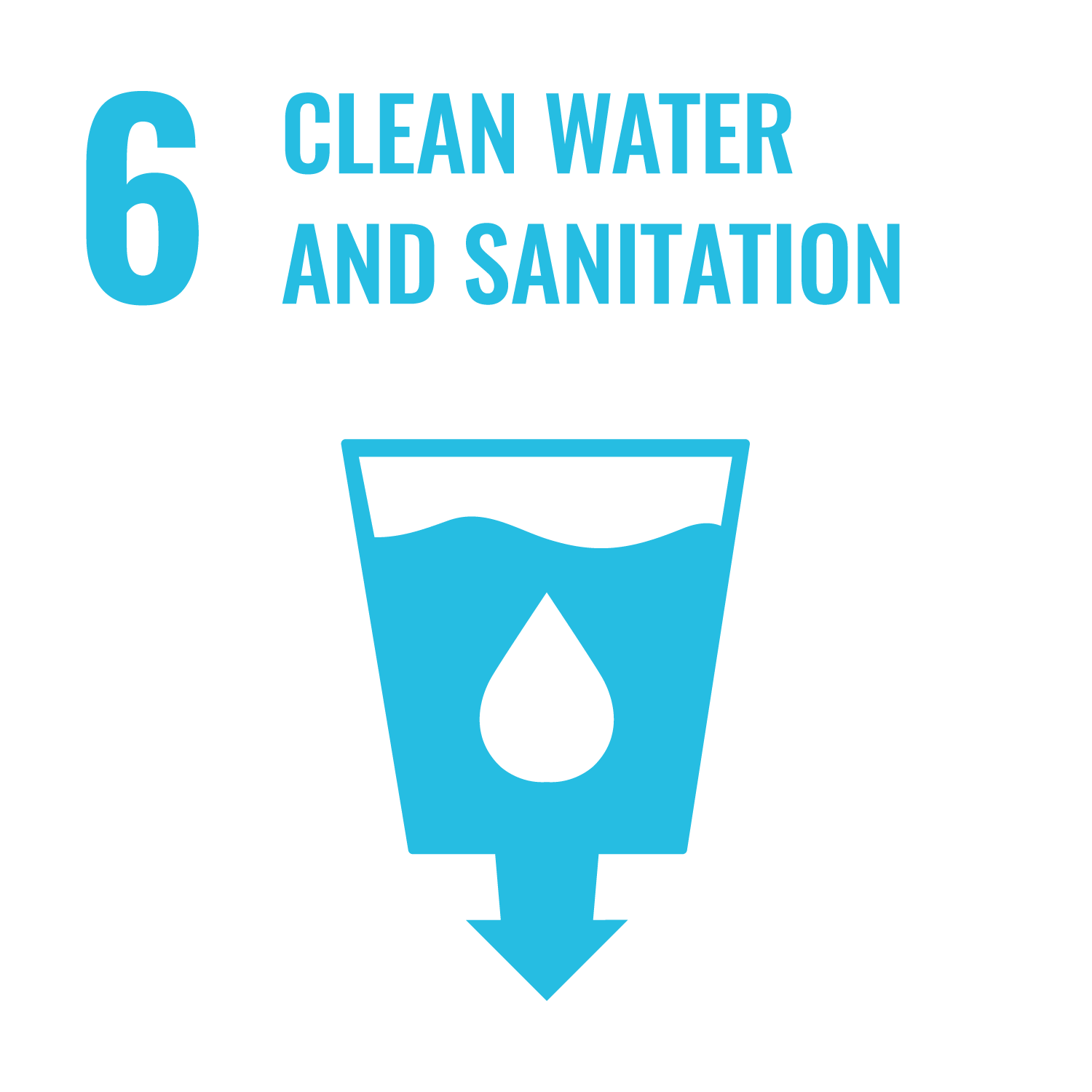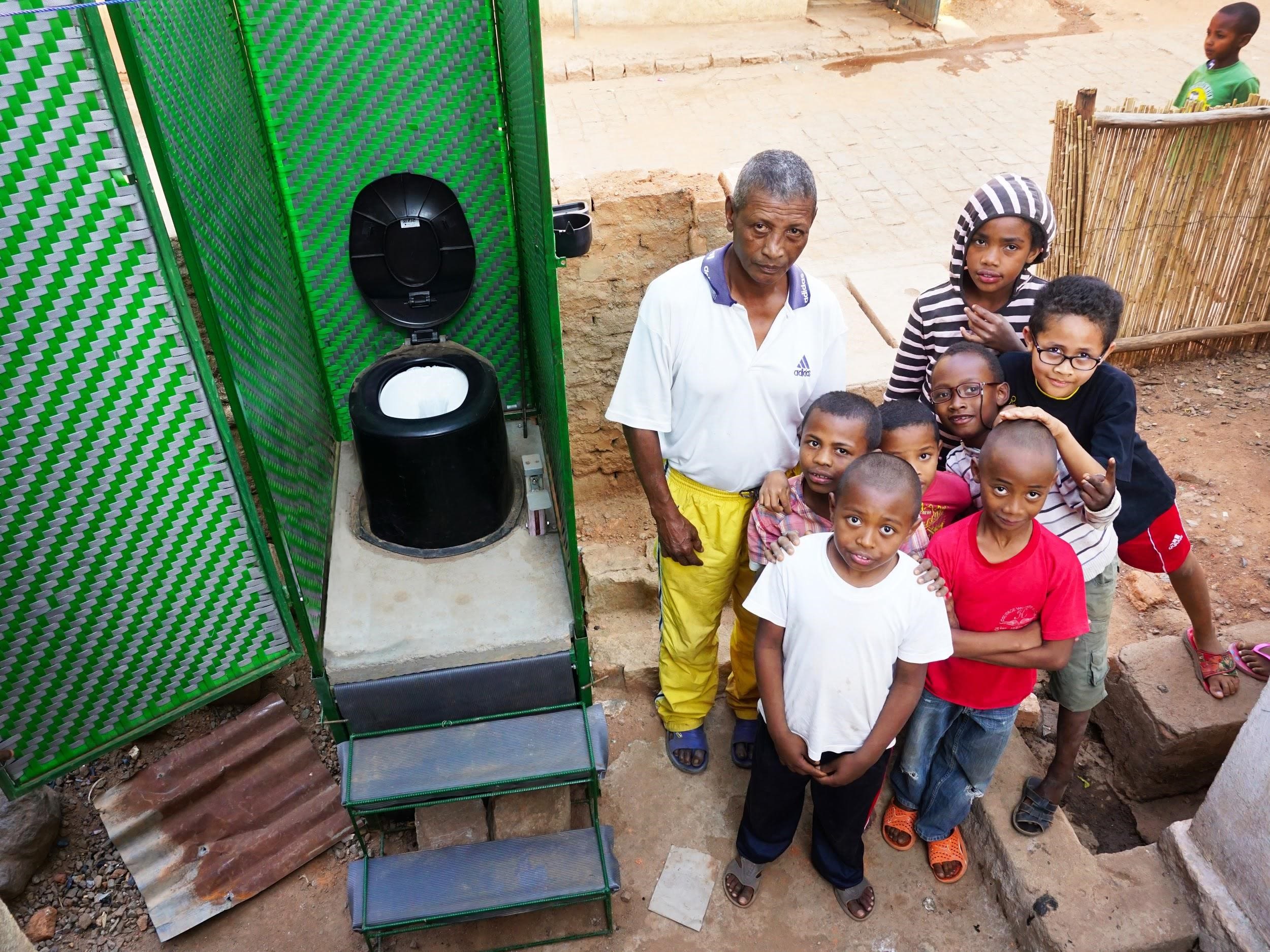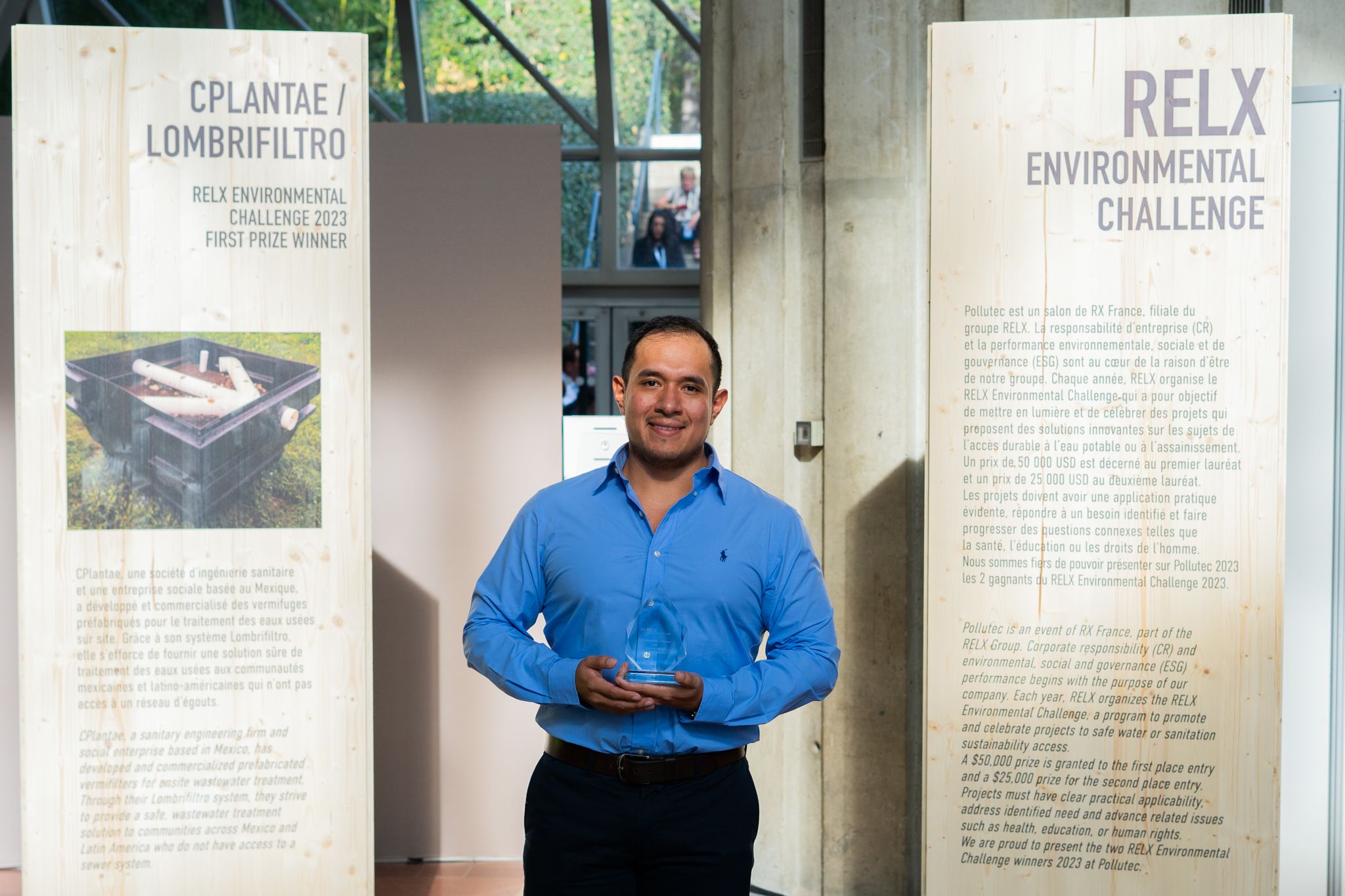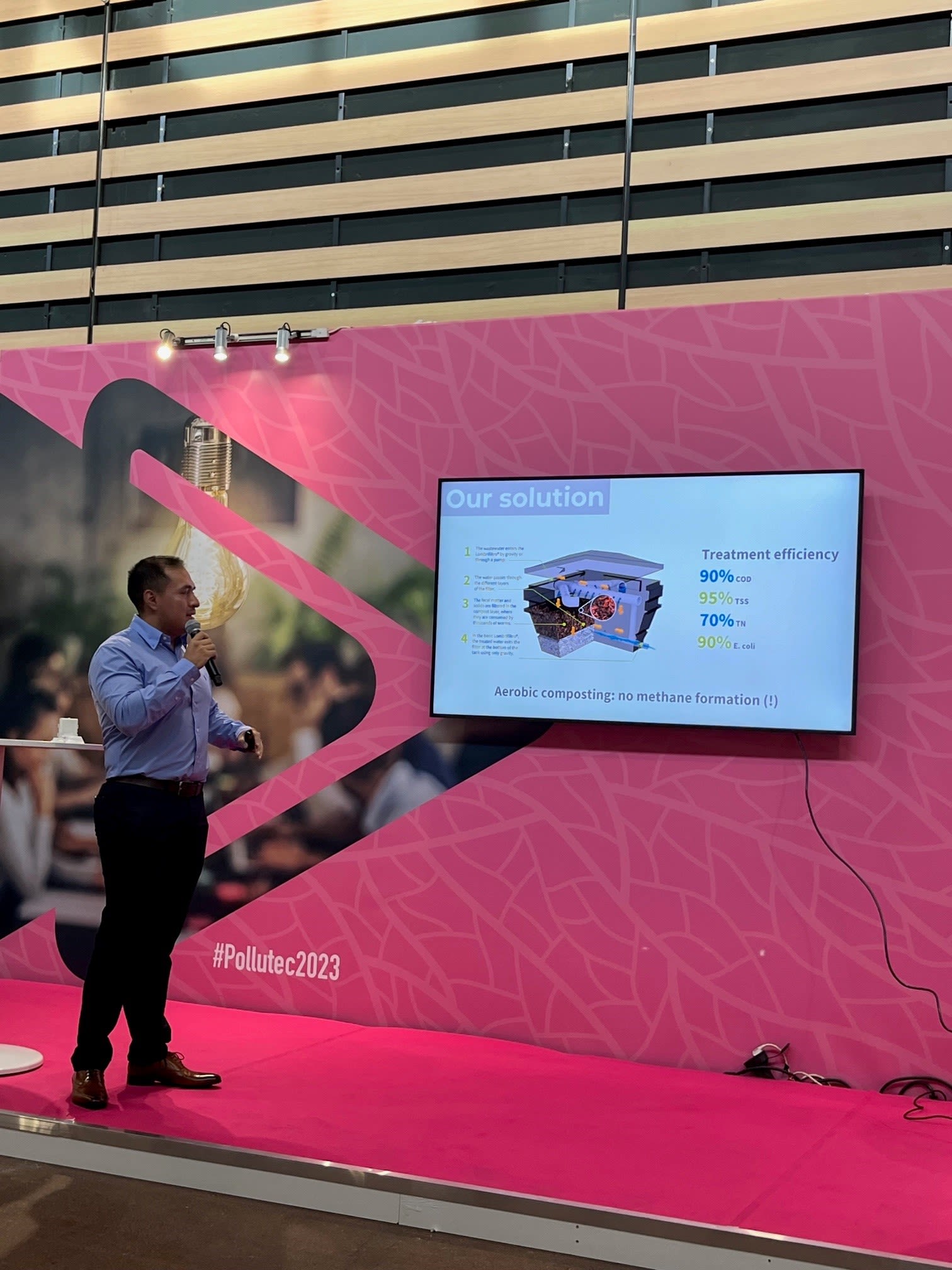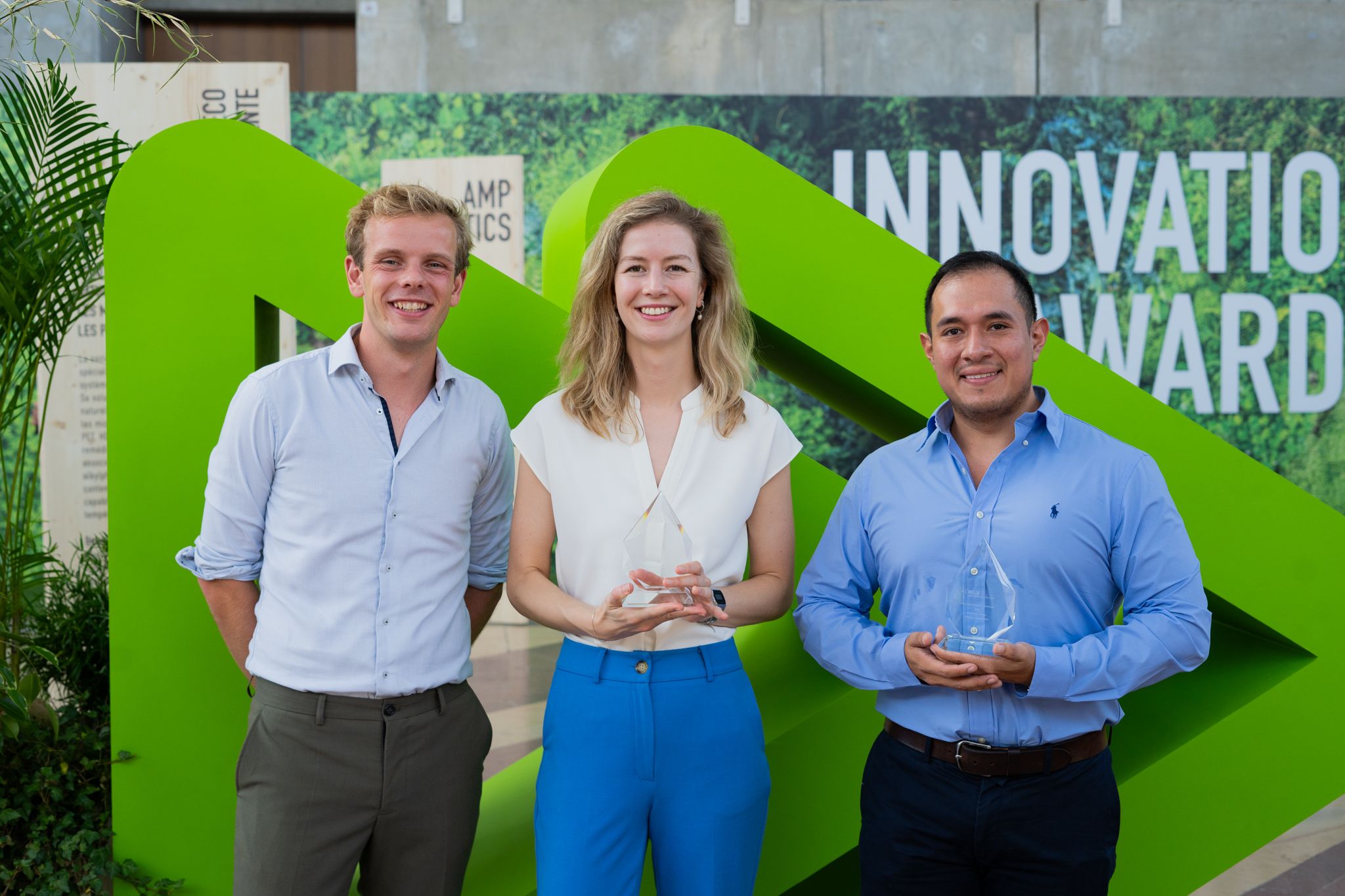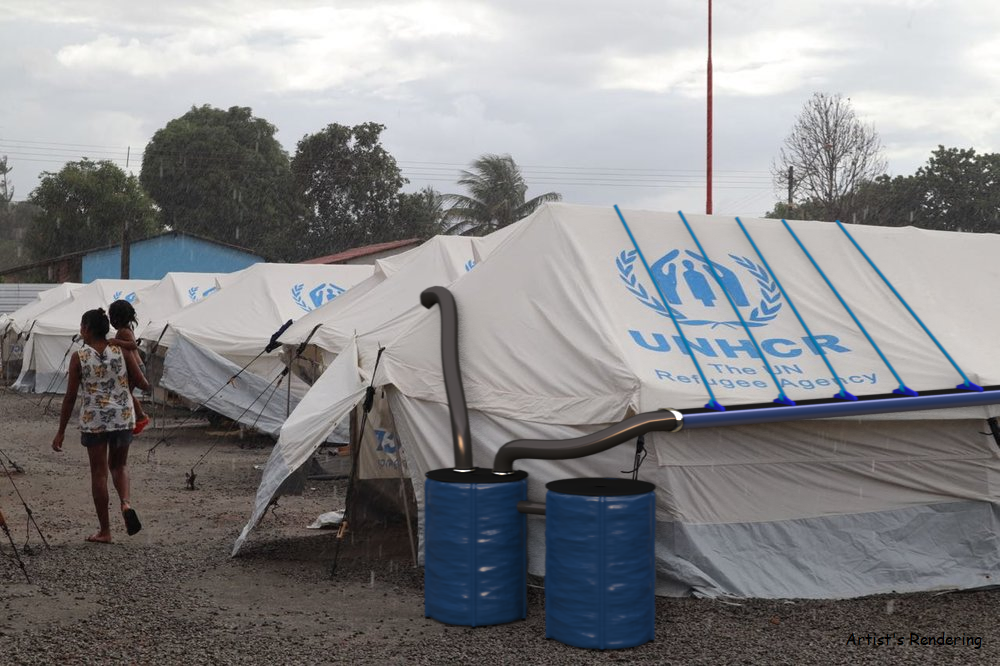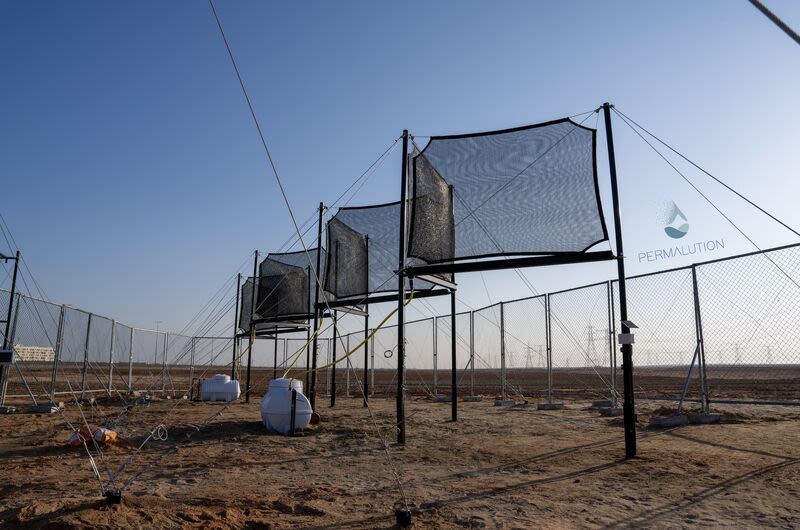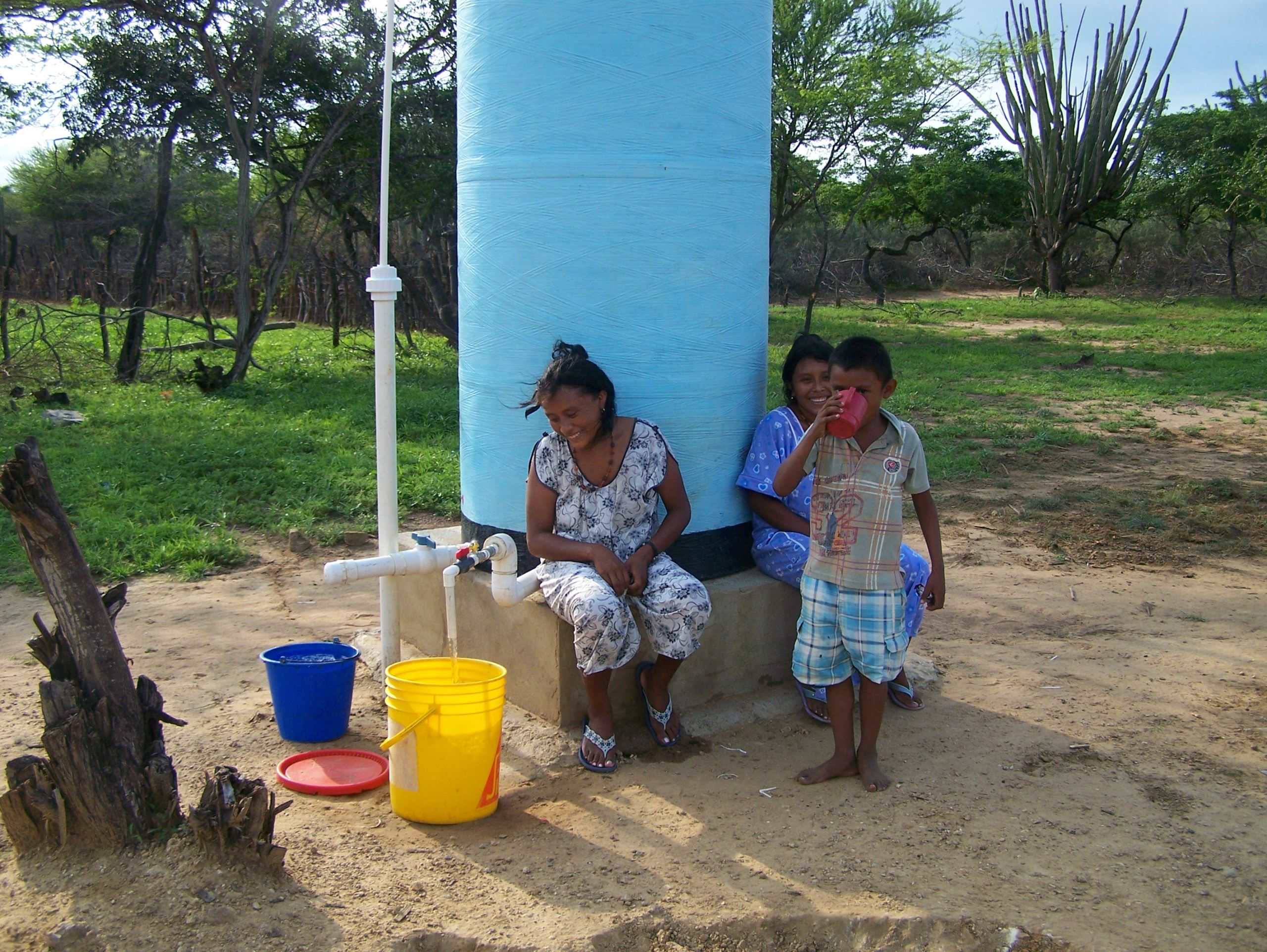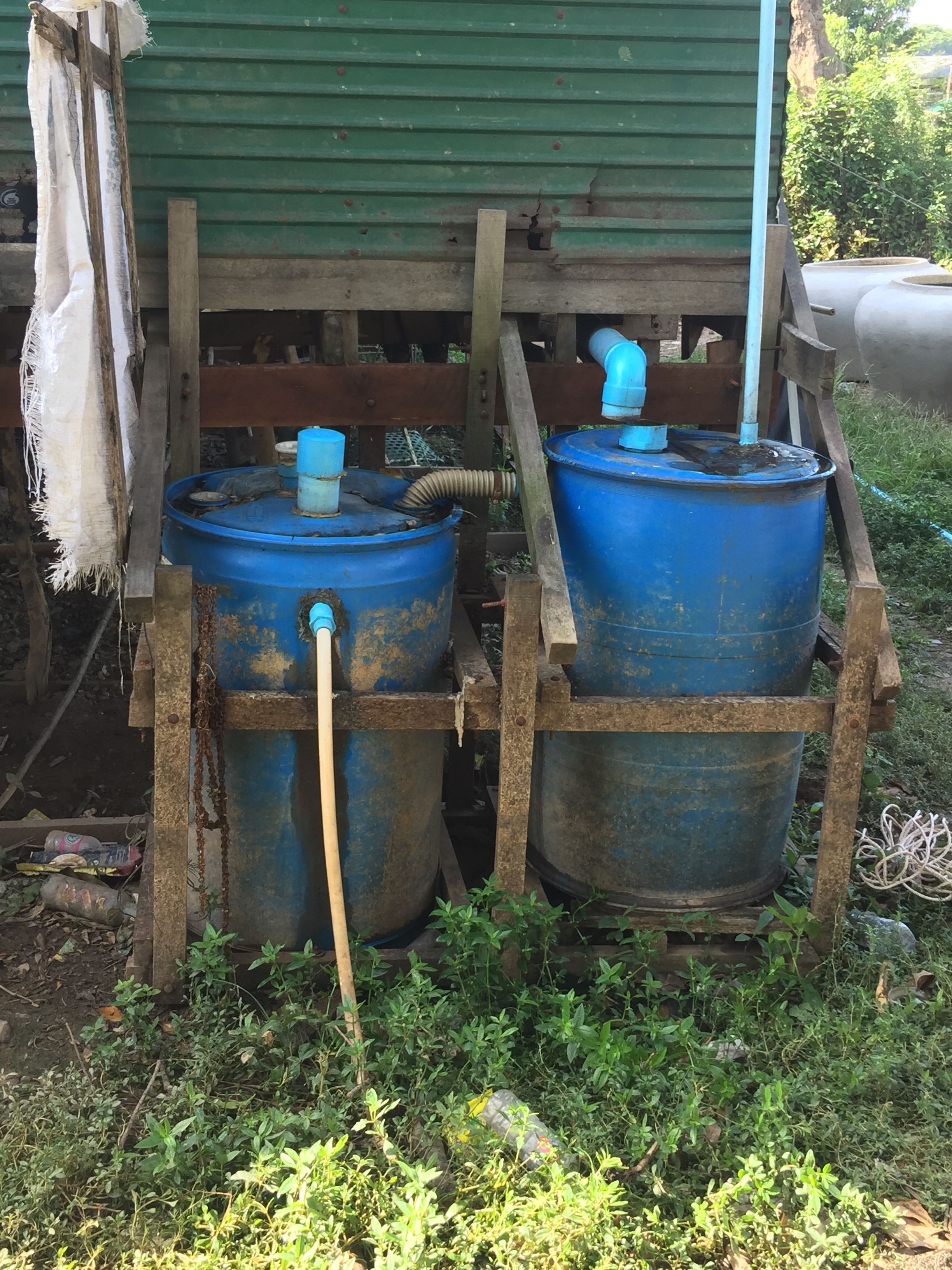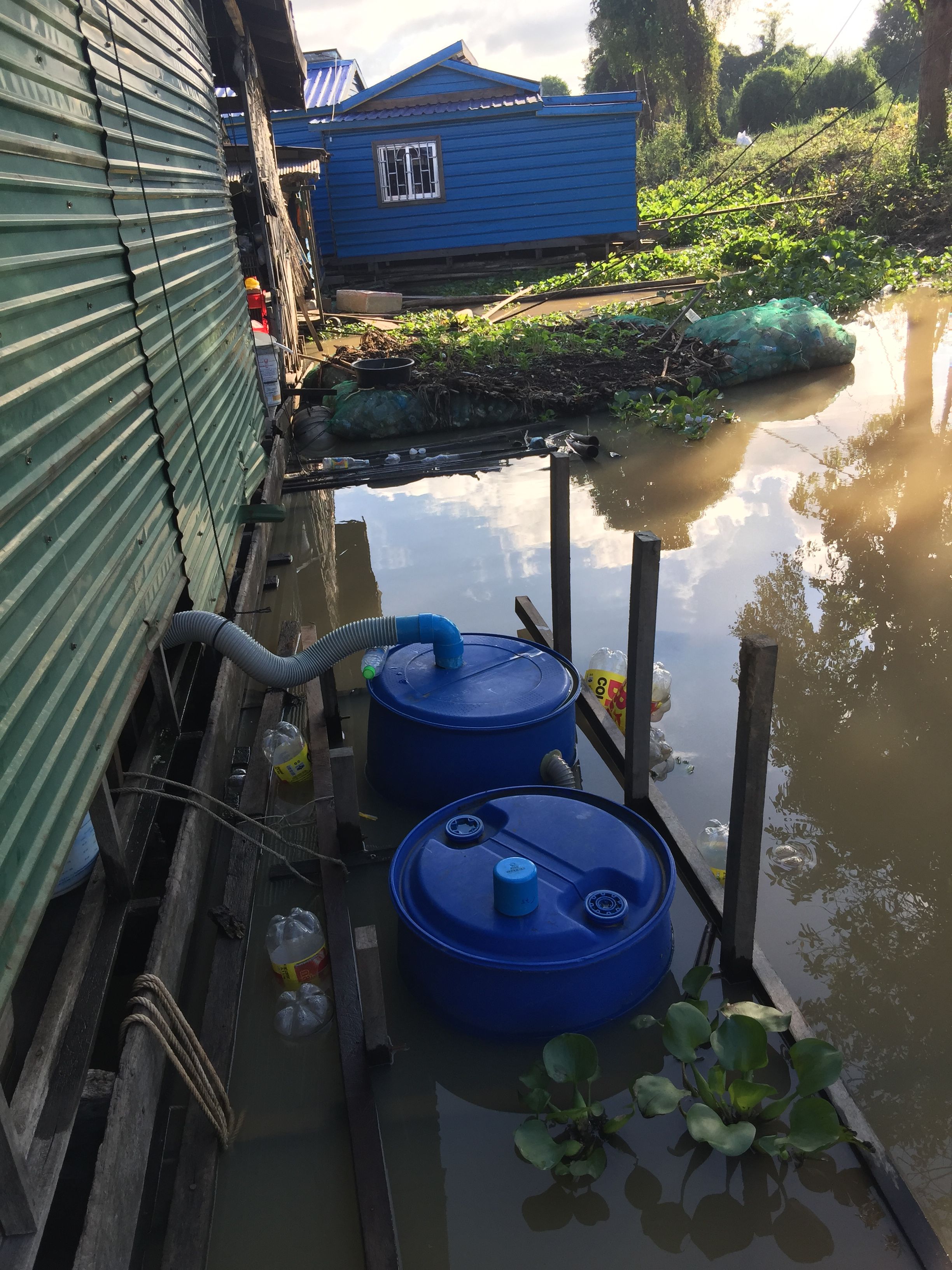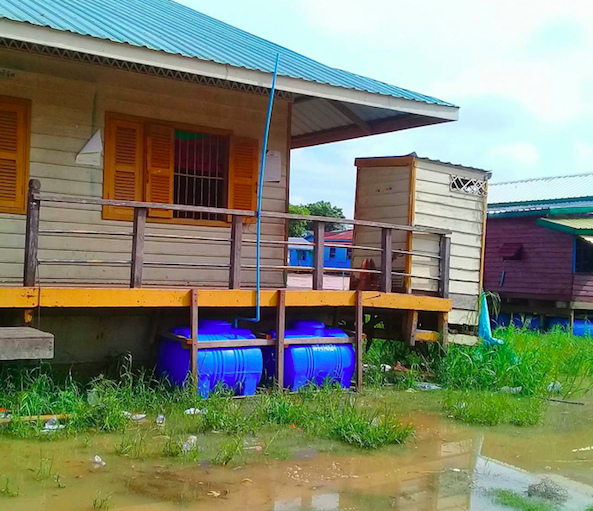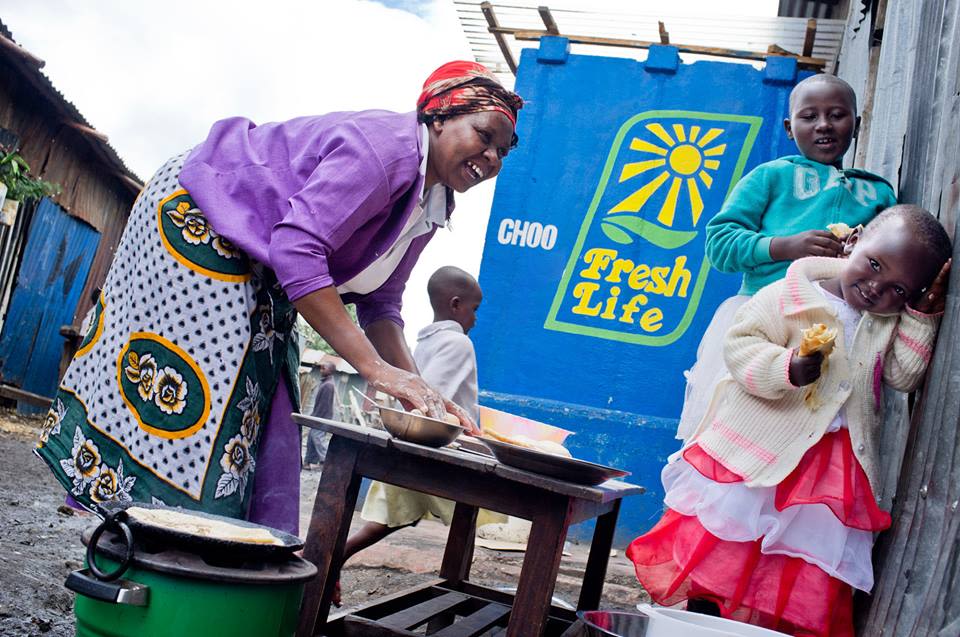RELX
Environmental
Challenge
Supporting water and sanitation innovators since 2011
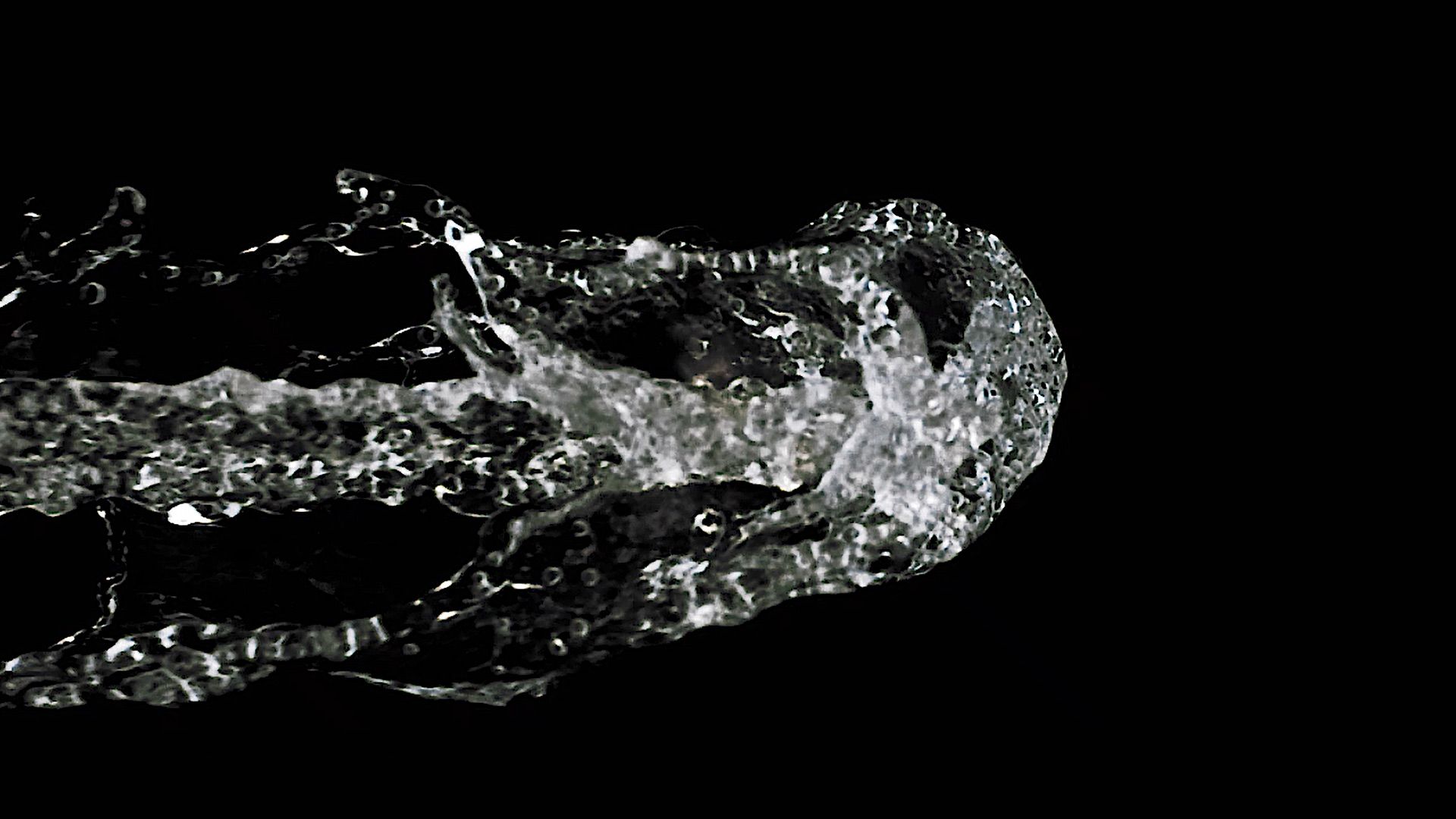
While working on the development of Loowatt, a waterless sanitation system that enables waste to be used in the production of energy and fertiliser, one question ran around Virginia Gardiner’s mind: “Why are we still flushing precious drinking water down the toilet? And it’s a solution that today only works for 30 per cent of the global population,” says Gardiner, the company’s CEO and inventor of the toilet system. “We don’t have a solution for the other 70 per cent.”
The desire to change this is behind a wave of innovations aimed at increasing access to clean water and proper sanitation facilities, many of which have, since 2011, been recognised through the RELX Environmental Challenge, an annual award for projects that best demonstrate how they can provide sustainable access to safe water or sanitation. The diversity of ideas, technologies and business models is remarkable – from a system that uses the energy from falling water to pump water to high altitudes, and from a technology that uses ultraviolet light to purify water to a new type of device for emptying pit latrines safely and efficiently.
While working on the development of Loowatt, a waterless sanitation system that enables waste to be used in the production of energy and fertiliser, one question ran around Virginia Gardiner’s mind: “Why are we still flushing precious drinking water down the toilet? And it’s a solution that today only works for 30 per cent of the global population,” says Gardiner, the company’s CEO and inventor of the toilet system. “We don’t have a solution for the other 70 per cent.”
The desire to change this is behind a wave of innovations aimed at increasing access to clean water and proper sanitation facilities, many of which have, since 2011, been recognised through the RELX Environmental Challenge, an annual award for projects that best demonstrate how they can provide sustainable access to safe water or sanitation. The diversity of ideas, technologies and business models is remarkable – from a system that uses the energy from falling water to pump water to high altitudes, and from a technology that uses ultraviolet light to purify water to a new type of device for emptying pit latrines safely and efficiently.
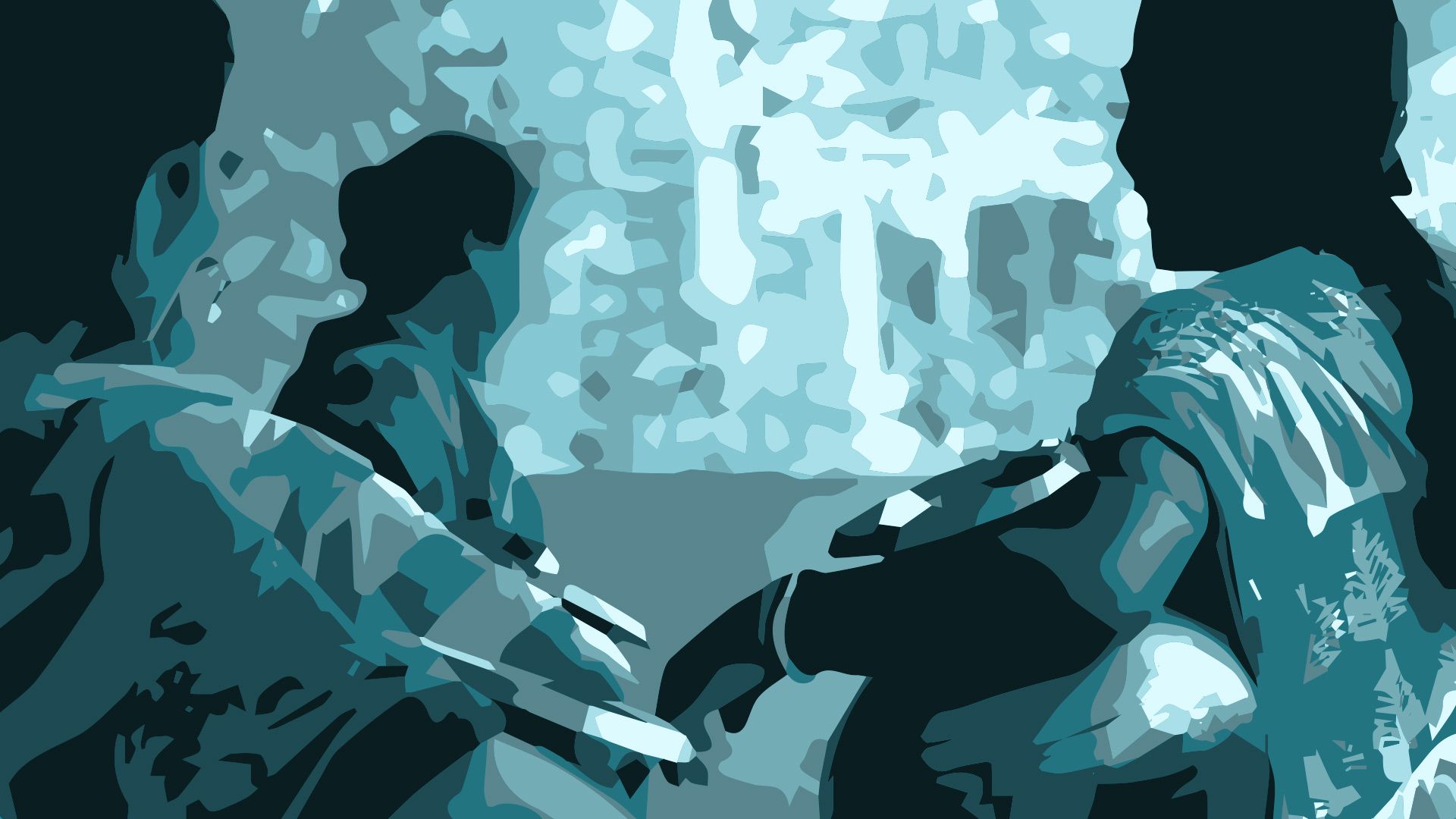
rising to the challenge
According to the World Health Organization around 800m people worldwide lack basic access to clean water and water scarcity affects more than 40 per cent of the world’s population. These figures are alarming. Yet global water stress is increasing, with population growth, socio-economic development and changing consumption patterns driving up demand by about 1 percent a year since the 1980s.
Equally worrying is the fact that some 2bn people around the world have no access to basic sanitation, with most of these communities using basic pit latrines or buckets or defecating in the open, putting them at risk of diarrhoea, a condition that kills more children than AIDS, malaria, and measles combined.
Making this situation worse is the rapid expansion of urban populations in cities where, according to UN-Habitat, the United Nations agency for human settlements, more than 1bn people (or one in eight) live in slums, most of which are not connected to municipal water or sanitation systems.
Without radical new systems and technologies, it will be impossible to meet the United Nations’ Sustainable Development Goal (SDG) 6, which aims to ensure availability and sustainable management of water and sanitation for all.
Yet, this is not the only goal dependent on universal access to water and sanitation. Meeting SDG 1, focused on poverty, and SDG 3, focused on health and wellbeing, depends on access to water and sanitation.
Meanwhile, SDG 4 (quality education for all) and SDG 5 (gender equality) are also closely linked to water since, if it is unavailable in the home, it is women and girls who are usually responsible for water collection. “That’s not productive time,” says Mark van Loosdrecht, a RELX Environmental Challenge judge, chair professor in environmental biotechnology at the Delft University of Technology and recipient of the 2018 Stockholm Water Prize for his work to revolutionize water and wastewater treatment. “So it leads to a loss of human capacity.”
Rewarding the innovators
It was the recognition of how central water is to human development that in 2010 led RELX to start developing an idea for a competition that would celebrate promising innovations that could advance global access to water and sanitation.
Márcia Balisciano, Chief Sustainability Officer and Global Head of Corporate Responsibility at RELX recalls: "It took us a while to figure out what we wanted to do. In 2010, there was a huge focus on climate change. But the one resource that seemed to be getting short shrift, and which is ultimately affected by climate change, was water.”
The result, launched in 2011, was the RELX Environmental Challenge, which awards projects and technologies that advance access to safe water or sanitation through sustainable solutions that can be scaled up.
Applicants can be individuals or organisations. They might work in the for-profit or non-profit sectors. They might be physicists, chemists, or work in business. But what they all have in common is that their innovation meets the criteria RELX set out for the competition. Submissions for the award must:
- Be replicable, scalable and sustainable and set a benchmark for innovation
- Have practical applicability
- Address non-discrimination and equity of access
- Involve and have an impact on a wide range of stakeholders
- Involve local communities
“It might be an individual who is really passionate and has a project that needs support to get beyond the pilot stage or it could be a social enterprise or a university lab,” says Balisciano. “But there’s a common entrepreneurial thread that unites all our winners.”
That passion and entrepreneurial spirit is hard to miss when looking at the projects and talking to some of the winners. And for many of those behind the innovations, an event, an experience, or an encounter was what spurred them into action.
It was meeting Alexander Løcke, an industrial designer, that led Johan Jensen to make a momentous decision: to leave his job at Maersk, the Danish shipping group, and join Løcke in working on a low-cost solar water purification technology that used ultraviolet radiation from direct sunlight. “I quickly realised the project was so exciting I had to be working full time on it," says Jensen. "A week later I quit my job.”
The result was SolarSack, which won the RELX Environmental Challenge 1st prize in 2019. This durable, lightweight bag with a tap, a handle, and a dispenser can be hung up in the home and, after four hours in direct sunlight, provides 4 litres of safe drinking water. Its price – $2 wholesale and around $4 to consumers – is as important as effectiveness. “We started with a dream to bring safe drinking water to all who need it at a price point where end-users could afford to buy it. That’s what sets us apart,” says Jensen. “Now we have grown to a team of 11 with over 50,000 SolarSacks being used in multiple countries.”
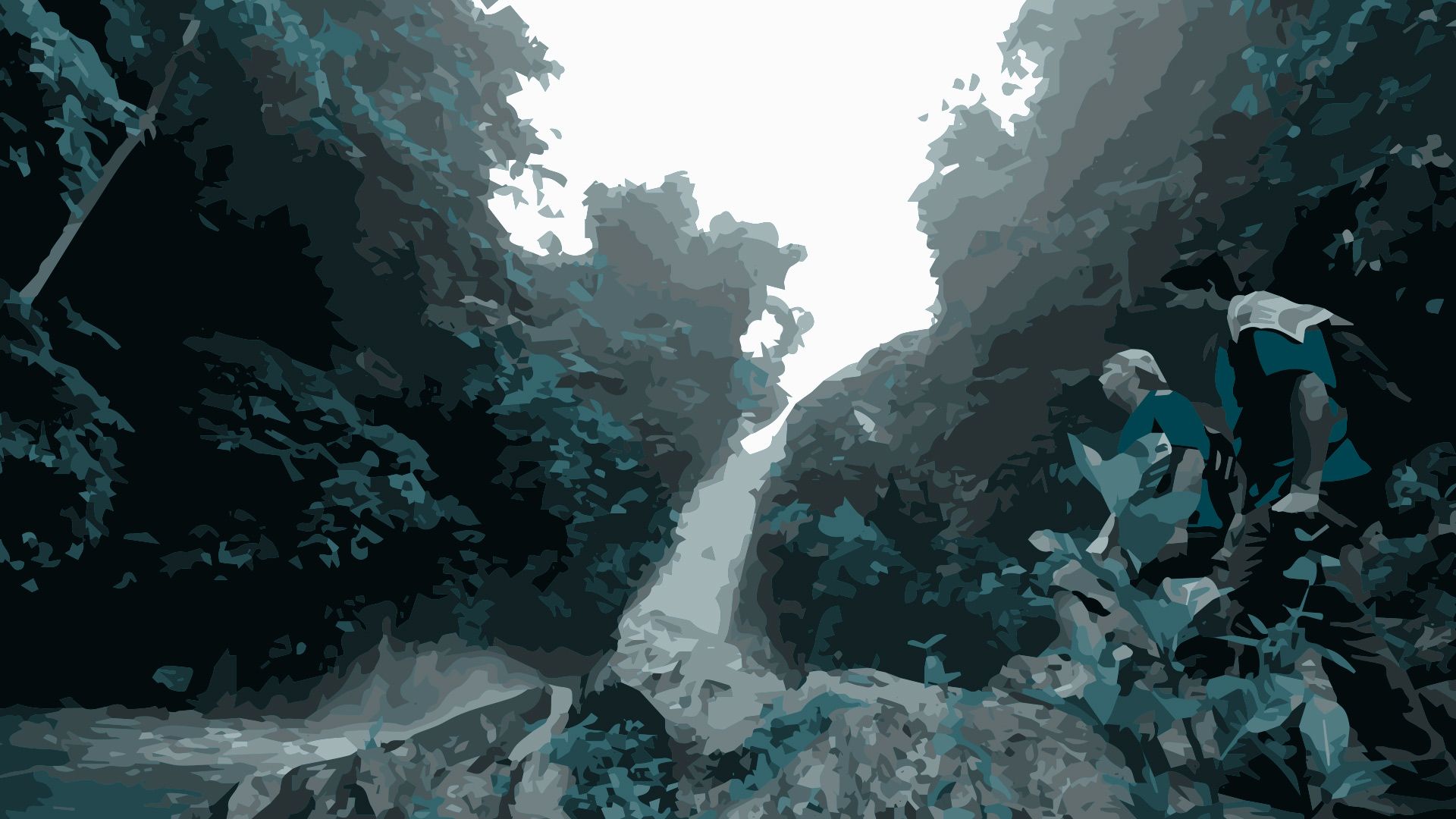
For Auke Idzenga, one of the founders of the Alternative Indigenous Development Foundation (AIDFI), it was memories of seeing a hydraulic ram pump – which uses the power of free-flowing water to raise water to higher elevations – while studying marine engineering in the Netherlands that was the inspiration for a water pump that would transform the lives of poor upland communities in the Philippines.
AIDFI, which won the RELX Environmental Challenge 1st prize in 2015, had been working to help develop technologies that could meet communities’ basic needs. “The villages and farms were at a higher elevation than the sources of water,” explains Idzenga. “We’d go and talk to people and, for as long as they could remember, they’d had to bring water up in bamboo pipes and later in 20-litre containers every morning and every afternoon.”
Given the weight of water and a walk of up to two kilometres to the source, this made life extremely difficult for the villagers, particularly during the rainy season, when the paths become perilous.
The AIDFI ram pump brings communities 10 times the volume of water that they could carry manually, giving them not only improved sanitation but also the ability to cultivate flowers and vegetables and raise fish such as tilapia, all of which can be sold at the local market. “It’s not a large amount of water in terms of gallons per minute,” says Idzenga. “But it completely changes a family’s life.”
But while inspiration drives innovation, success also requires persistence, something Francis de los Reyes can confirm. “It took a lot of brainstorming and a lot of prototyping,” says de los Reyes, an environmental engineer and North Carolina State University professor who helped develop the Flexcrevator, a new type of pit latrine emptying device for which the team won the RELX Environmental Challenge prize in 2018.
2018 Winner: Flexcrevator
2018 Winner: Flexcrevator
The Flexcrevator removes faecal sludge while excluding rubbish such as bottles, shoes and plastic bags, which clog up conventional machines. The device also avoids the need for manual removal, which is unsanitary and dangerous.
However, while the awards recognise technical innovations, an equally important consideration for the judges is whether or not the inventions are economically sustainable. “It’s not just about bringing a new pump to a village and then leaving,” says van Loosdrecht. “To bring sanitation to developing countries, you can only do that by designing smart solutions that are combined with social and economic implementation. Someone must be able to make a living from it locally, otherwise you have to keep putting in money.”
For Loowatt, which won the RELX Environmental Challenge 1st prize in 2016, this means working with local utilities, waste treatment agencies and municipalities that are looking for more effective, affordable solutions to household sanitation, particularly for low-income communities. “First, we had to demonstrate the technology, then we had to commercialise the technology and prove its commercial viability and service model by setting up our own operations,” explains Gardiner. “And in the past two-and-a-half years, we’ve been selling hardware to service providers. So now we have an exciting project with the city of Manila, which is rolling out non-sewered sanitation for base-of-the pyramid customers around the city.”
2016 Winner: Loowatt
2016 Winner: Loowatt
Moreover, Loowatt’s innovation is not only its waterless flush toilets. It also supplies the biodegradable polymer film refill, which seals human waste so it can be transported safely to an anaerobic digester, where it is converted into natural gas or fertiliser. The whole system, therefore, creates local jobs and incomes, as well as local manufacturing opportunities in the production of the toilet refills.
For Balisciano, local financial sustainability is an essential component of successful award winners. “We want to avoid the old model where you bring a water pump into a village and 18 months later the pump is broken, the donor has gone and no one knows how to fix it,” she says. “It really has to be a partnership on the ground with the communities involved.”

For Auke Idzenga, one of the founders of the Alternative Indigenous Development Foundation (AIDFI), it was memories of seeing a hydraulic ram pump – which uses the power of free-flowing water to raise water to higher elevations – while studying marine engineering in the Netherlands that was the inspiration for a water pump that would transform the lives of poor upland communities in the Philippines.
AIDFI, which won the RELX Environmental Challenge 1st prize in 2015, had been working to help develop technologies that could meet communities’ basic needs. “The villages and farms were at a higher elevation than the sources of water,” explains Idzenga. “We’d go and talk to people and, for as long as they could remember, they’d had to bring water up in bamboo pipes and later in 20-litre containers every morning and every afternoon.”
Given the weight of water and a walk of up to two kilometres to the source, this made life extremely difficult for the villagers, particularly during the rainy season, when the paths become perilous.
The AIDFI ram pump brings communities 10 times the volume of water that they could carry manually, giving them not only improved sanitation but also the ability to cultivate flowers and vegetables and raise fish such as tilapia, all of which can be sold at the local market. “It’s not a large amount of water in terms of gallons per minute,” says Idzenga. “But it completely changes a family’s life.”
But while inspiration drives innovation, success also requires persistence, something Francis de los Reyes can confirm. “It took a lot of brainstorming and a lot of prototyping,” says de los Reyes, an environmental engineer and North Carolina State University professor who helped develop the Flexcrevator, a new type of pit latrine emptying device for which the team won the RELX Environmental Challenge prize in 2018.
2018 Winner: Flexcrevator
2018 Winner: Flexcrevator
The Flexcrevator removes faecal sludge while excluding rubbish such as bottles, shoes and plastic bags, which clog up conventional machines. The device also avoids the need for manual removal, which is unsanitary and dangerous.
However, while the awards recognise technical innovations, an equally important consideration for the judges is whether or not the inventions are economically sustainable. “It’s not just about bringing a new pump to a village and then leaving,” says van Loosdrecht. “To bring sanitation to developing countries, you can only do that by designing smart solutions that are combined with social and economic implementation. Someone must be able to make a living from it locally, otherwise you have to keep putting in money.”
For Loowatt, which won the RELX Environmental Challenge 1st prize in 2016, this means working with local utilities, waste treatment agencies and municipalities that are looking for more effective, affordable solutions to household sanitation, particularly for low-income communities. “First, we had to demonstrate the technology, then we had to commercialise the technology and prove its commercial viability and service model by setting up our own operations,” explains Gardiner. “And in the past two-and-a-half years, we’ve been selling hardware to service providers. So now we have an exciting project with the city of Manila, which is rolling out non-sewered sanitation for base-of-the pyramid customers around the city.”
2016 Winner: Loowatt
2016 Winner: Loowatt
Moreover, Loowatt’s innovation is not only its waterless flush toilets. It also supplies the biodegradable polymer film refill, which seals human waste so it can be transported safely to an anaerobic digester, where it is converted into natural gas or fertiliser. The whole system, therefore, creates local jobs and incomes, as well as local manufacturing opportunities in the production of the toilet refills.
For Balisciano, local financial sustainability is an essential component of successful award winners. “We want to avoid the old model where you bring a water pump into a village and 18 months later the pump is broken, the donor has gone and no one knows how to fix it,” she says. “It really has to be a partnership on the ground with the communities involved.”
More than money
In designing the Environmental Challenge, the RELX team of course created a prize that came with a financial reward. Winners receive a $50,000 prize for a first place entry and a $25,000 prize for second place. However, as the experiences of past winners demonstrate, the benefit of the award extends beyond the money.
Winners, for example, also receive free access for a year to ScienceDirect, the subscription-based scientific, technical and medical database provided by RELX’s Elsevier subsidiary. It includes almost 250,000 articles in environmental sciences that have been published since 2000. “That helped our team a lot because some of the areas we were looking at researching we found in the ScienceDirect database,” says SolarSack’s Jensen. “It’s hard to calculate how many hours and how much money it would have cost us to find knowledge that others had already found, so having access to those data is important.”
In addition, the award raises the profile of the winners, helping them secure additional funding or partnerships with governments, companies and other innovators. “The RELX grant is a big thing in terms of credibility and recognition,” says Flexcrevator’s de los Reyes. “That was a big boost for us. And then practically it also allowed us to reach out to partners in Rwanda, Madagascar and Ghana.”
For the Centre for Affordable Water and Sanitation Technology (CAWST), the profile of the award brought attention to its innovation, which enabled it to embark on further research. CAWST won the RELX Environmental Challenge 1st prize in 2012 for a project developed in Nepal by its research director, Tommy Ngai, which modified conventional biosand filters with iron particles to improve the removal of all four biological water contaminants, including viruses. The award helped CAWST embark on research projects with institutions such as the University of Illinois, the Swiss Federal Institute of Aquatic Science and Technology and the Japan International Cooperation Agency. “RELX was an important launchpad for additional research by CAWST and others on the biosand filter,” says Shauna Curry, CAWST CEO. “It helped us to profile the biosand filter as an important solution, with interesting research potential.”
To celebrate 10 years of the RELX Environmental Challenge, the team have introduced a 10-year prize to encourage past winners to collaborate on improved water and sanitation projects that draw on their respective array of impressive technologies, skills, networks and on the ground experience.
For the first time in 2023, the winners of the RELX Environmental Challenge were invited to attend Pollutec - the RX event held in Lyon, France - bringing together companies, industries and cities looking for solutions to their climate and environmental challenges and the entrepreneurs, products and services that can help them.
The 2023 $50,000 first prize winner is Lombrifiltro by CPlantae, a sanitary engineering firm and social enterprise based in Mexico that has developed and commercialized prefabricated vermifilters for onsite wastewater treatment. The Lombrifiltro system uses vermifiltration, an extension of the vermicomposting process whereby earthworms digest suspended particles and degrade organic matter through enzymatic activity. CPlantae strive to provide a safe, wastewater treatment solution to communities across Mexico and Latin America who do not have do not have access to a sewer system.
The $25,000 second prize winner is TU Delft Water For Impact that has developed electrocoagulation - a method to treat surface water using solar power and removing the need for costly and often hard to access chemicals. The pilot project will test the approach and effectiveness in providing a solution to groundwater treatment challenges in northern Ghana. Netherlands based, TU Delft Water for Impact aims to have real world impact using multidisciplinary science, technology and innovation in co-creation with local partners.
Both winners were invited to attend and exhibit in Pollutec's Start-up zone - a dedicated space to showcase the companies and solutions of the future. Throughout the show, the start-ups were invited to pitch their solutions on a dedicated stage helping to further promote the most dynamic and relevant environmental solutions and innovations.
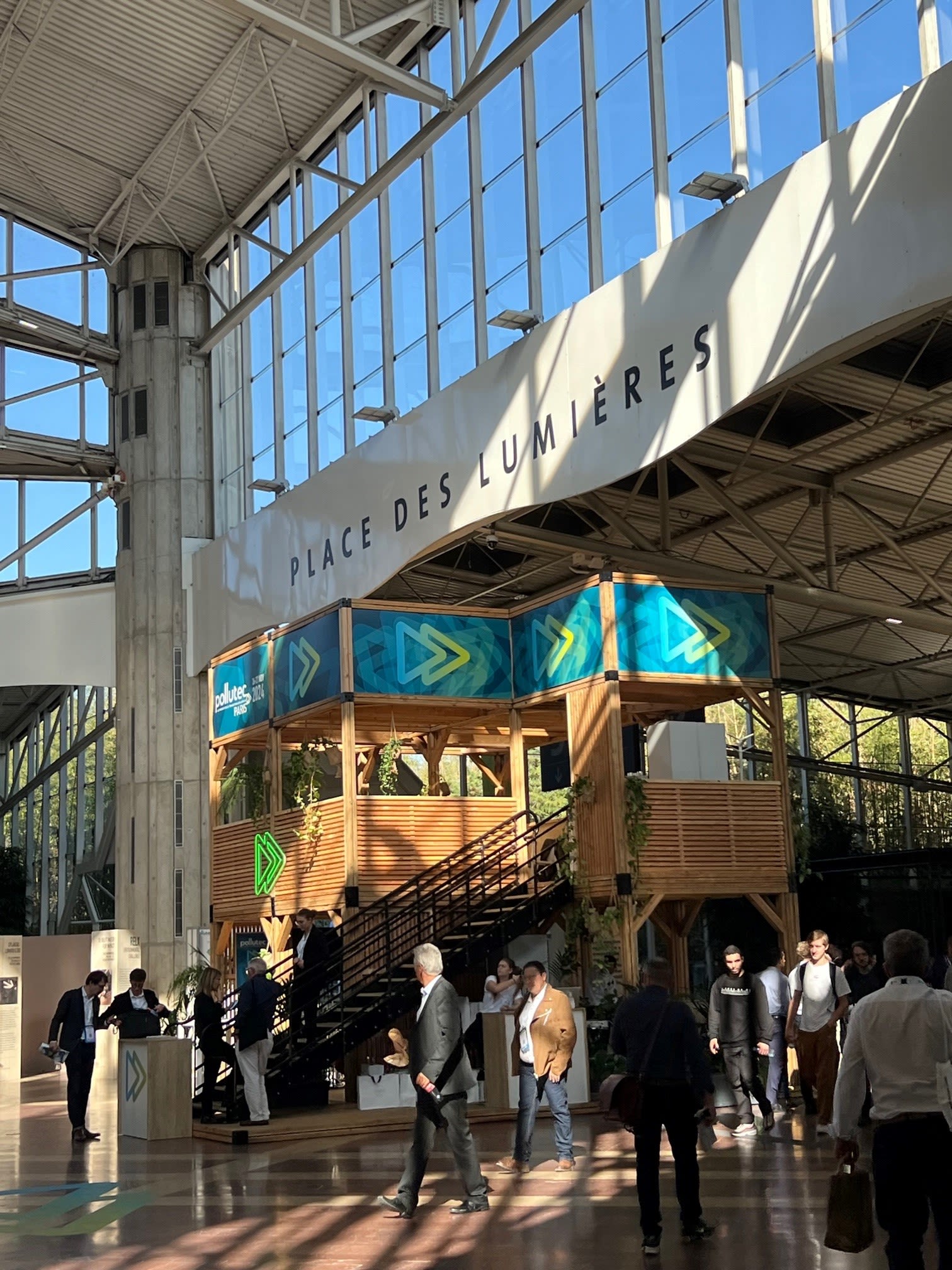
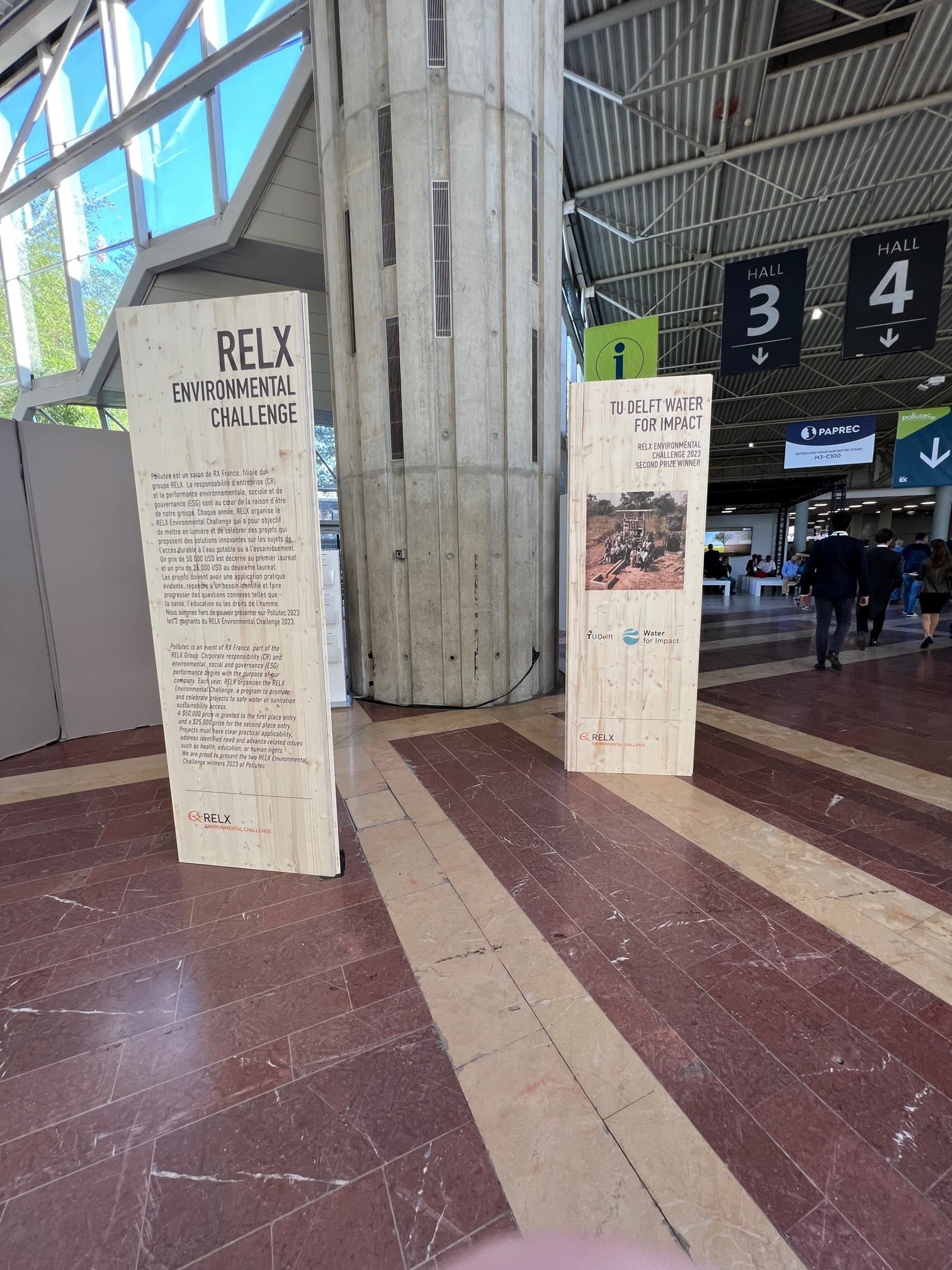
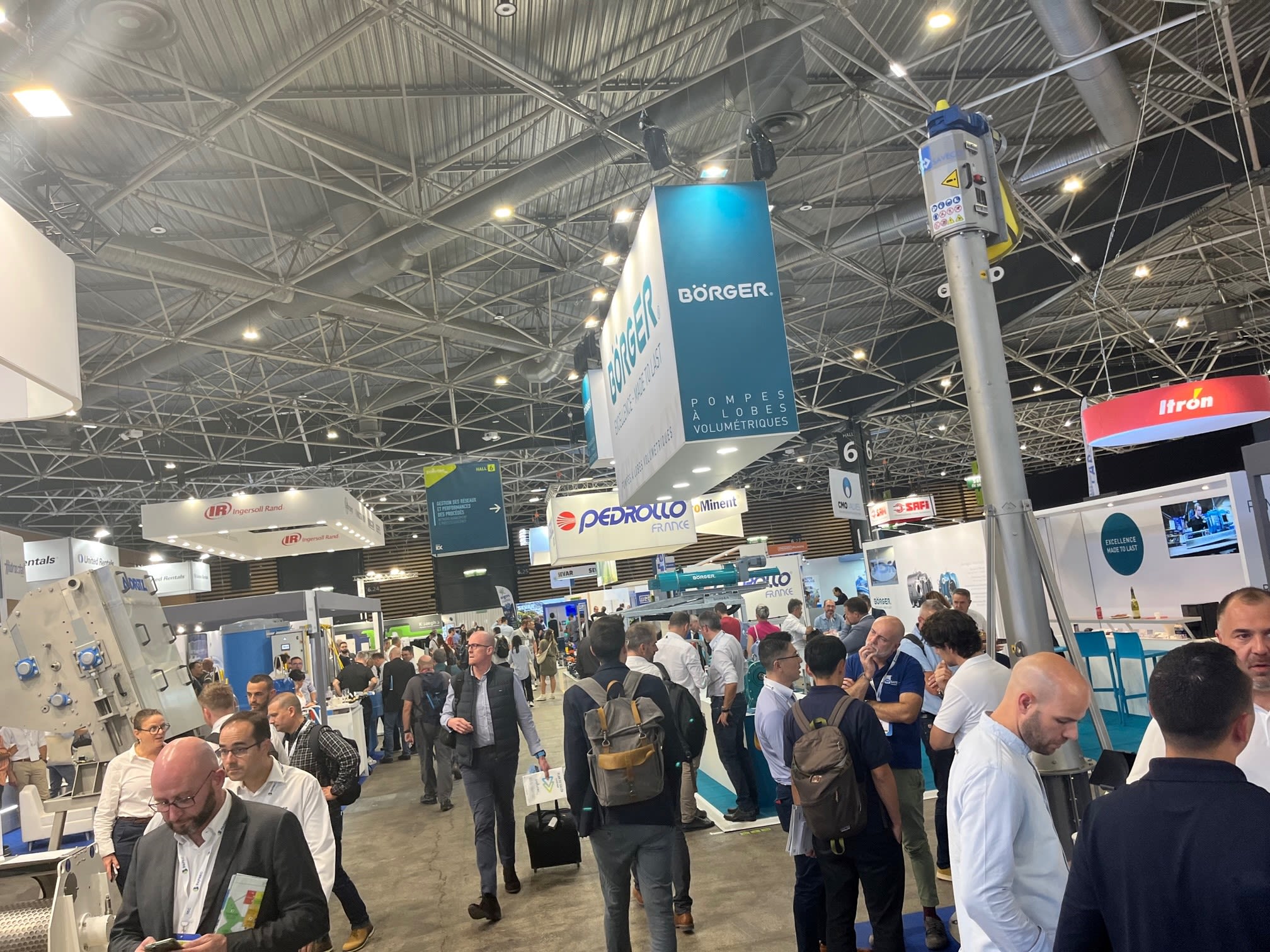
The 2024 first prize winner is LivingWater Systems, a portable, rainwater harvesting system designed to support its own weight without being physically attached to its host housing unit, therefore making it suitable for use on any home with a pitched roof, including refugee tents and less durable informal structures. LivingWater Systems’ simple and versatile guttering units preserve a renewable supply of clean water by leveraging the surface area of the user’s home. It takes a single individual no more than 20 minutes to set up and the low-cost, portable gutters are ideal for disaster relief situations as well as in off-grid settings for supplementing essential household needs like drinking, bathing, and irrigating plants.
'LivingWaters Systems is honored and thrilled to be chosen as the winner of this year's RELX Environmental Challenge. The support we are privileged with from RELX will enable us to expand our manufacturing capabilities to deliver more portable rain catchment systems to a greater number of off-grid settlements, moving us closer to our ultimate objective of democratizing rain harvesting throughout all remote areas where basic water and sanitation is most deficient and inconsistent.'
The second prize of $25,000 went to Permalution, a startup company harnessing fog and clouds with its innovative technology, consisting of three main components; Fog Atlas - a predictive model identifying optimal project locations based on fog and cloud patterns (25% of the world currently mapped); Water Radar - meteorological sensors that analyse clouds and fog to estimate water yields, assess water quality, and conduct cost-benefit analyses and Fog Collectors - passive devices with hydrophilic membranes that gather water droplets from the air, collecting between 150-400 litres per day per unit.
more winners in action
Aguaclara
Aguaclara
Aguaclara
Aguaclara
Aeropurifier
Aeropurifier
Aeropurifier
Aeropurifier
Gadgil
Gadgil
Handypod
Handypod
Handypod
Handypod
Handypod
Handypod
Sanergy
Sanergy


